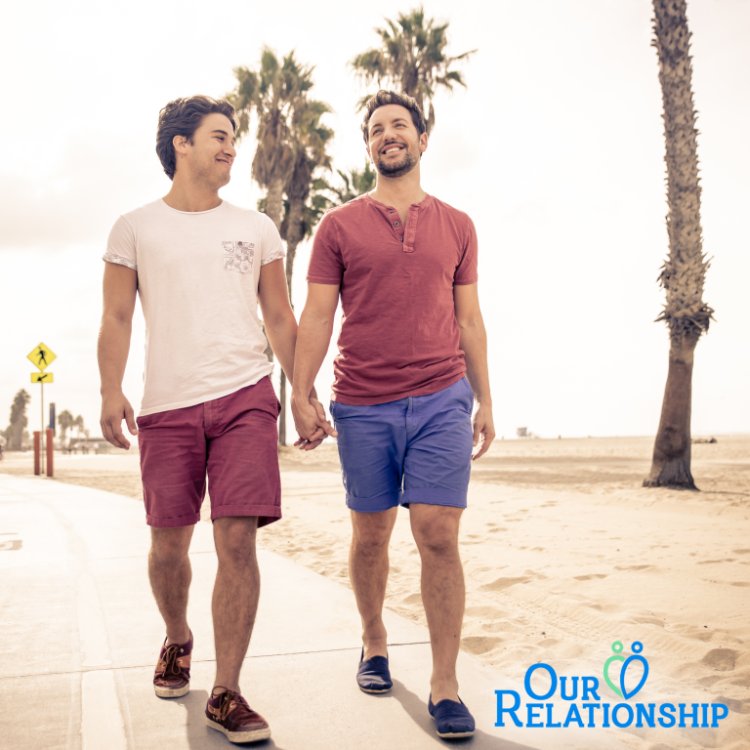Overcoming Stereotypes and Misunderstandings as an LGBTQ+ Couple
by Jackson Weiser and Charlotte Cremers It is no secret that individuals in LGBTQ+ relationships often face various stereotypes and misconceptions from society. These stereotypes can create barriers and misunderstandings, impacting the well-being and dynamics of relationships. It is important to be resilient in the face of these stereotypes so that you can overcome the negative effects they can have on you and your relationships. Understanding Stereotypes To effectively address and overcome these stereotypes, it is important to first understand their nature and the consequences they may have. Definition of stereotypes and their impact on LGBTQ+ couples: Stereotypes are fixed, oversimplified beliefs or assumptions about a particular group of people. When it comes to LGBTQ+ couples, stereotypes often sustain misconceptions and reinforce prejudice, creating more discrimination and social stigmatization for them. Common stereotypes faced by LGBTQ+ individuals and couples: LGBTQ+ indi

by Jackson Weiser and Charlotte Cremers
It is no secret that individuals in LGBTQ+ relationships often face various stereotypes and misconceptions from society. These stereotypes can create barriers and misunderstandings, impacting the well-being and dynamics of relationships. It is important to be resilient in the face of these stereotypes so that you can overcome the negative effects they can have on you and your relationships.
Understanding Stereotypes
To effectively address and overcome these stereotypes, it is important to first understand their nature and the consequences they may have.
Definition of stereotypes and their impact on LGBTQ+ couples:
Stereotypes are fixed, oversimplified beliefs or assumptions about a particular group of people. When it comes to LGBTQ+ couples, stereotypes often sustain misconceptions and reinforce prejudice, creating more discrimination and social stigmatization for them.
Common stereotypes faced by LGBTQ+ individuals and couples:
LGBTQ+ individuals and couples encounter various stereotypes that may arise from ignorance or ingrained biases. It can be hard to read about some of these; however, understanding these biased views can also help you recognize when you’re being viewed unfairly. Some prevalent stereotypes include:
– “The Promiscuous Lifestyle”: Assuming that LGBTQ+ couples engage in promiscuity or that their relationships lack commitment and stability. It is important to remember that LGBTQ+ relationships are as stable and enduring as heterosexual relationships, and that relationship challenges are not exclusive to any particular orientation.
– “Gender Roles and Identity”: Presuming that there must be a strict adherence to traditional gender roles within LGBTQ+ relationships or assuming that one partner must exhibit more masculine or feminine traits. However, research shows that there is a lot of variability of gender roles and traits amongst both heterosexual and same-gender couples.
– “Influence on Children”: Misconceptions that LGBTQ+ couples are bad influences, unfit, or incapable of providing a nurturing environment for children. However, numerous scientific studies have shown that this is simply not true.
– “Phase or Choice”: Incorrectly perceiving being LGBTQ+ as a phase or a deliberate choice rather than a fundamental aspect of one’s identity.
– “Unnatural or abnormal”: Thinking that it is somehow a mistake that not everybody is cisgender and heterosexual. However, in nature, life takes on diverse forms. It is natural to have variations, including in the realm of sexuality. For people who are gay, being attracted to people of the same gender is natural.
Negative effects of stereotypes on relationships and personal well-being:
Unfortunately, these stereotypes can have negative effects on LGBTQ+ individuals and their relationships. These effects include:
– Increased stress and anxiety: Navigating societal stereotypes can create emotional distress, impacting the mental health of individuals and couples.
– Strained relationship dynamics: Stereotypes may result in external pressures that challenge trust, communication, and mutual understanding within the relationship.
– Limited acceptance: Stereotypes can impede social acceptance, leading to feelings of isolation, rejection, and a lack of support from friends, family, or the larger community.
We can start the journey toward removing these harmful beliefs and fostering a more inclusive, accepting environment for all by recognizing and understanding the impact of stereotypes on LGBTQ+ couples.
Challenging Misunderstandings
There are several things that can be done to combat these stereotypes:
Educating others about the diversity and complexity of LGBTQ+ experiences:
– Sharing personal stories and experiences: Personal narratives humanize LGBTQ+ relationships, providing insight into the lived experiences and challenges faced.
– Promoting LGBTQ+ representation: Advocating for positive and accurate representation in media, literature, and other platforms to showcase the diverse range of LGBTQ+ relationships.
– Providing resources and information: Sharing educational resources, articles, and reputable organizations that provide accurate information about LGBTQ+ relationships.
Encouraging empathy and understanding to foster healthy relationships:
Developing empathy and understanding is essential for creating a supportive environment. Here’s how we can promote empathy:
– Listening actively: Encourage open and non-judgmental communication, allowing your partner to share their thoughts, feelings, and experiences without fear of rejection.
– Seeking common ground: Focus on shared values, emotions, and experiences to bridge gaps and build empathy, emphasizing that love and the desire for meaningful relationships are universal.
– Promoting communication and learning: Encourage open-minded conversations, respectful questions, and a desire to learn from one another.
– Non-defensive responses: Respond with empathy and curiosity rather than defensiveness, fostering an atmosphere of understanding and acceptance.
Emphasizing the importance of open communication within LGBTQ+ relationships:
– Building trust: Honest and transparent communication builds a foundation of trust, allowing you to feel secure and understood in the relationship.
– Expressing needs and concerns: Open dialogue allows partners to express their needs, desires, and concerns.
– Strengthening connection: Engaging in meaningful conversations helps partners deepen their emotional bond, creating a stronger sense of intimacy and connection.
If you would like to learn more on how to talk about the status and future of your relationship, click here.
Building a Supportive Network
By cultivating relationships with supportive friends, family, and allies, surrounding yourself with positive influences and role models, and celebrating LGBTQ+ identities, we can foster a sense of community and create an environment of love, acceptance, and understanding.
Cultivating a network of supportive friends, family, and allies:
– Open communication: Engage in honest conversations with friends, family, and allies about your experiences and needs, creating opportunities for understanding and support.
– Setting boundaries: Establish boundaries with individuals who may not be accepting or supportive, focusing on nurturing relationships with those who demonstrate empathy and respect.
If you would like to learn tips on raising a child in a same-gender household, click here.
Surrounding yourself with positive influences and role models:
– Engage with LGBTQ+ media: Educate yourself on LGBTQ+ literature, movies, music, and other media that promote positive representations and diverse narratives.
– Follow LGBTQ+ advocates: Seek out LGBTQ+ activists, influencers, and role models who inspire and uplift the community, promoting self-acceptance and pride.
– Engage in LGBTQ+ events: Consider attending LGBTQ+ pride parades, community gatherings, and other events that celebrate identities and foster a sense of belonging.
Conclusion
Remember, your journey is unique and deserving of understanding and respect. By understanding the ways in which anti-LGBTQ+ influences can affect us, we can better protect ourselves and our relationships in order to lead a more satisfying life.
If you find that the problems in your relationship persist or become overwhelming, consider seeking a relationship support program specifically designed for LGBTQ+ couples. The OurRelationship program offers a free, online program for same-gender and LGBTQ+ couples to explore and address the challenges in your relationship.
The post Overcoming Stereotypes and Misunderstandings as an LGBTQ+ Couple appeared first on OurRelationship.
What's Your Reaction?













